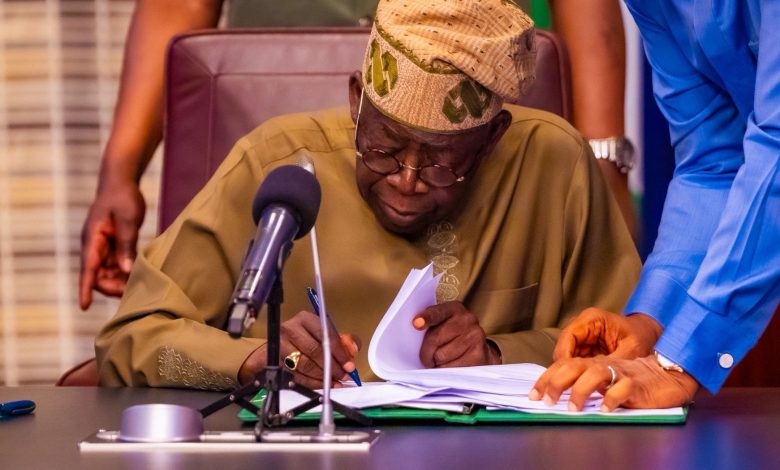President Bola Tinubu has requested an additional $347 million loan under Nigeria’s 2025–2026 borrowing plan.
The extra funds are earmarked for two major infrastructure projects the Lagos-Calabar Coastal Highway and a national telecom expansion.
Speaker of the House of Representatives, Tajudeen Abbas, read Tinubu’s letter to lawmakers during Wednesday’s plenary session.
In the letter, the president explained that rising costs have forced the government to seek more funding.
The coastal highway project’s total cost has now jumped by $47 million. Initially pegged at $700 million, the revised figure stands at $747 million.
Tinubu explained that the initial borrowing plan only secured commitments for $700 million from lenders.
He said the $47 million shortfall was covered by export credit agencies.
However, to align with formal financing documents, the government must now match the full $747 million cost with approved loans.
In addition, Tinubu is seeking $300 million for the Universal Communications Access Project.
This telecom project will deploy 7,000 new towers to underserved and remote communities across Nigeria.
The goal is to bridge the nation’s digital divide and expand mobile and internet coverage.
Tinubu noted that the telecom project was mistakenly omitted from the original borrowing request.
This latest ask brings the total external borrowing request to $21.89 billion, up from the initial $21.54 billion Tinubu submitted in May. That package also included ₦2.19 trillion, ¥15 billion, and a €65 million grant.
The House Committee on Aids, Loans, and Debt Management, chaired by Abubakar Nalaraba, reviewed the updated proposal.
After consideration, lawmakers approved the new request. The Senate had already passed the revised borrowing plan on Tuesday, July 22, 2025.
Despite the increase in debt, the House said Nigeria’s debt portfolio remains within safe limits. The federal government’s total debt is now over ₦145 trillion, but the debt-to-GDP ratio is still around 50%.
That figure is below the international threshold of 56%.
The House also noted a key improvement: the debt service-to-revenue ratio has dropped from over 90% to under 70%.
Lawmakers said this change shows the Tinubu administration is making progress.
They added that the new Nigerian Tax Act 2025, which is projected to increase revenue by 18% annually from 2026, will boost the government’s ability to repay loans.
According to them, the improved revenue outlook reduces the risk of future debt distress.







